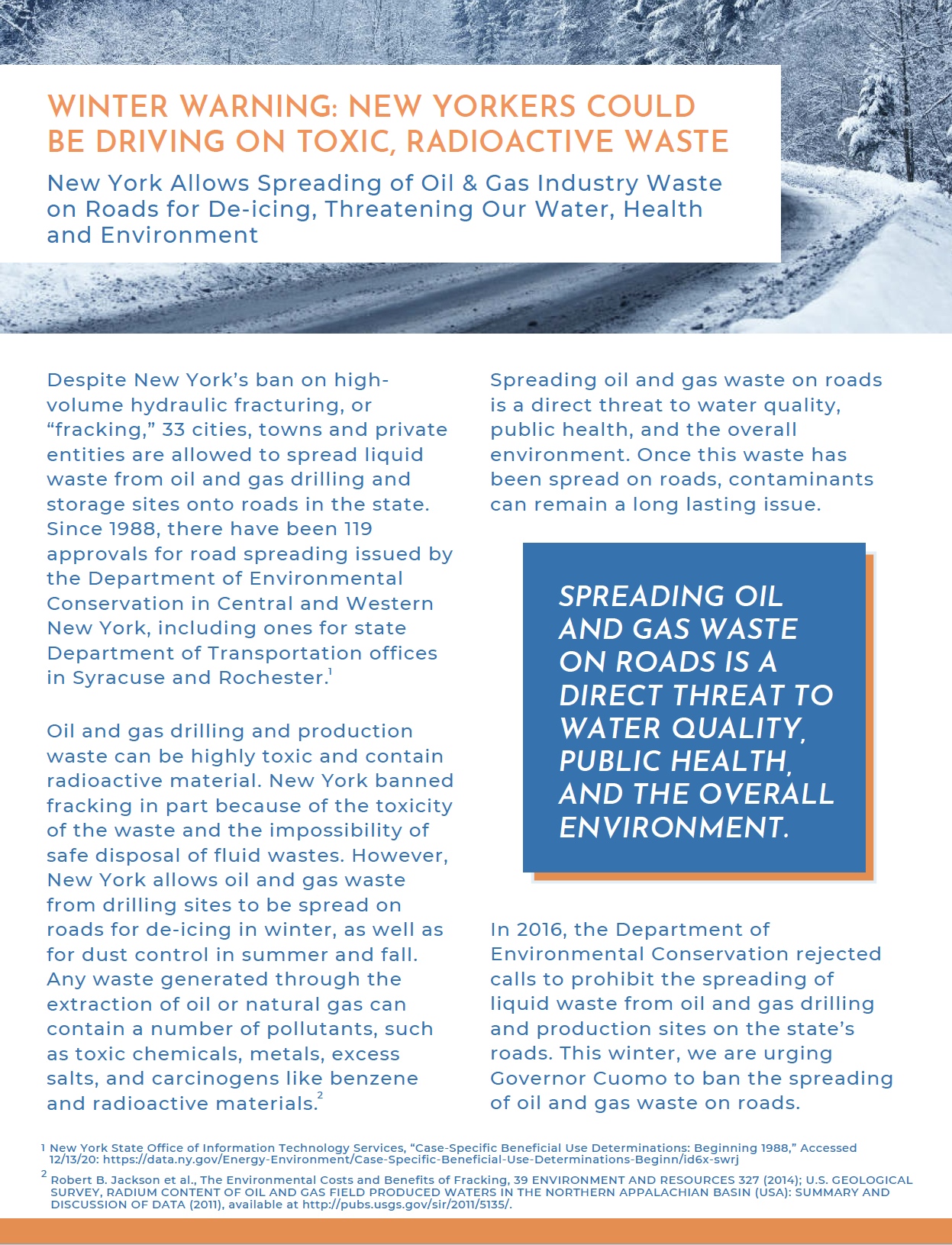Despite New York’s ban on high-volume hydraulic fracturing, or “fracking,” 33 cities, towns and private entities are allowed to spread liquid waste from oil and gas drilling and storage sites onto roads in the state. Since 1988, there have been 119approvals for road spreading issued by the Department of EnvironmentalConservation in Central and WesternNew York, including ones for state Department of Transportation offices in Syracuse and Rochester.
Oil and gas drilling and production waste can be highly toxic and contain radioactive material. New York banned fracking in part because of the toxicity of the waste and the impossibility of safe disposal of fluid wastes. However, New York allows oil and gas waste from drilling sites to be spread on roads for de-icing in winter, as well as for dust control in summer and fall. Any waste generated through the extraction of oil or natural gas can contain a number of pollutants, such as toxic chemicals, metals, excess salts, and carcinogens like benzene and radioactive materials.
Spreading oil and gas waste on roads is a direct threat to water quality, public health, and the overall environment. Once this waste has been spread on roads, contaminants can remain a long-lasting issue.



